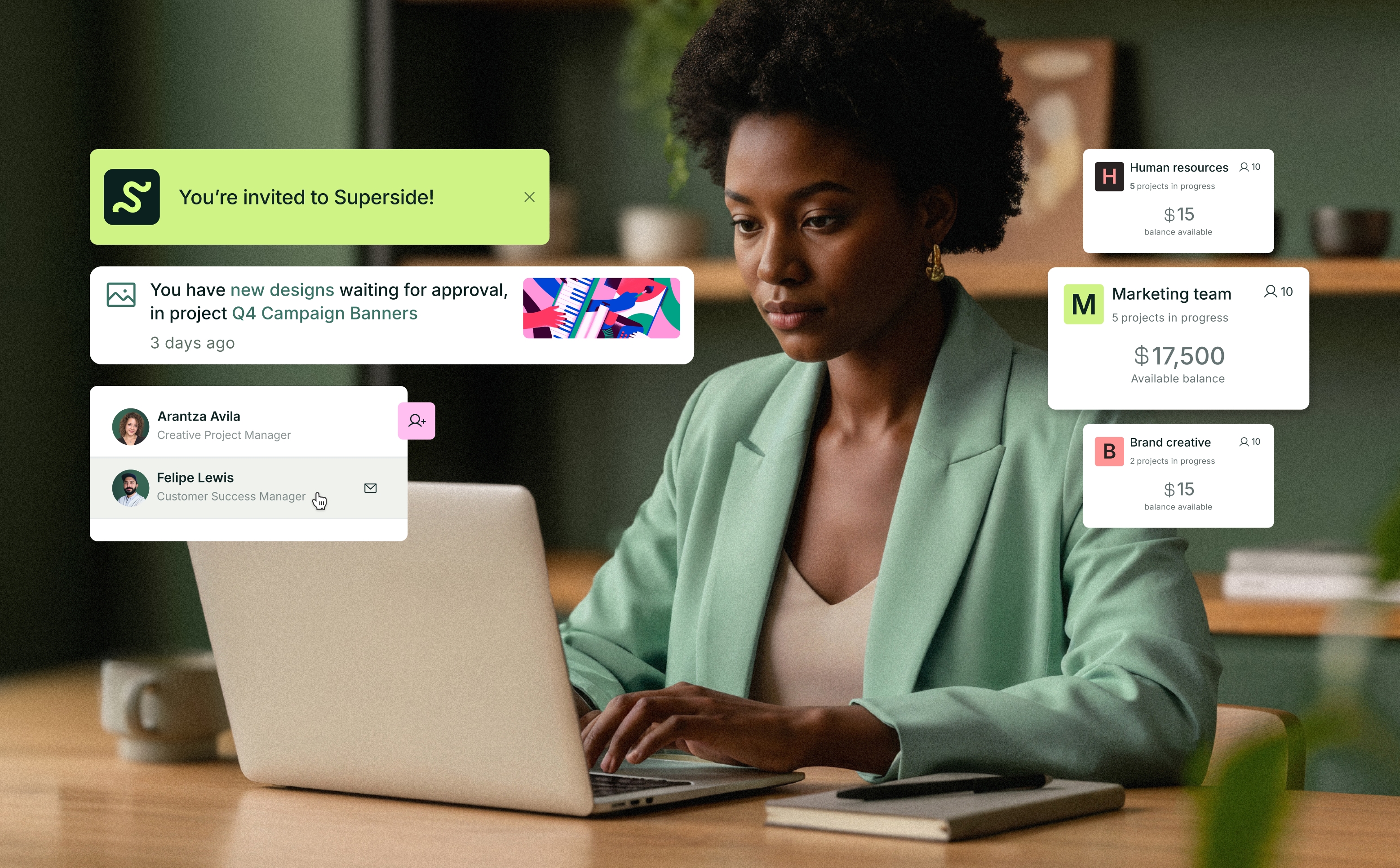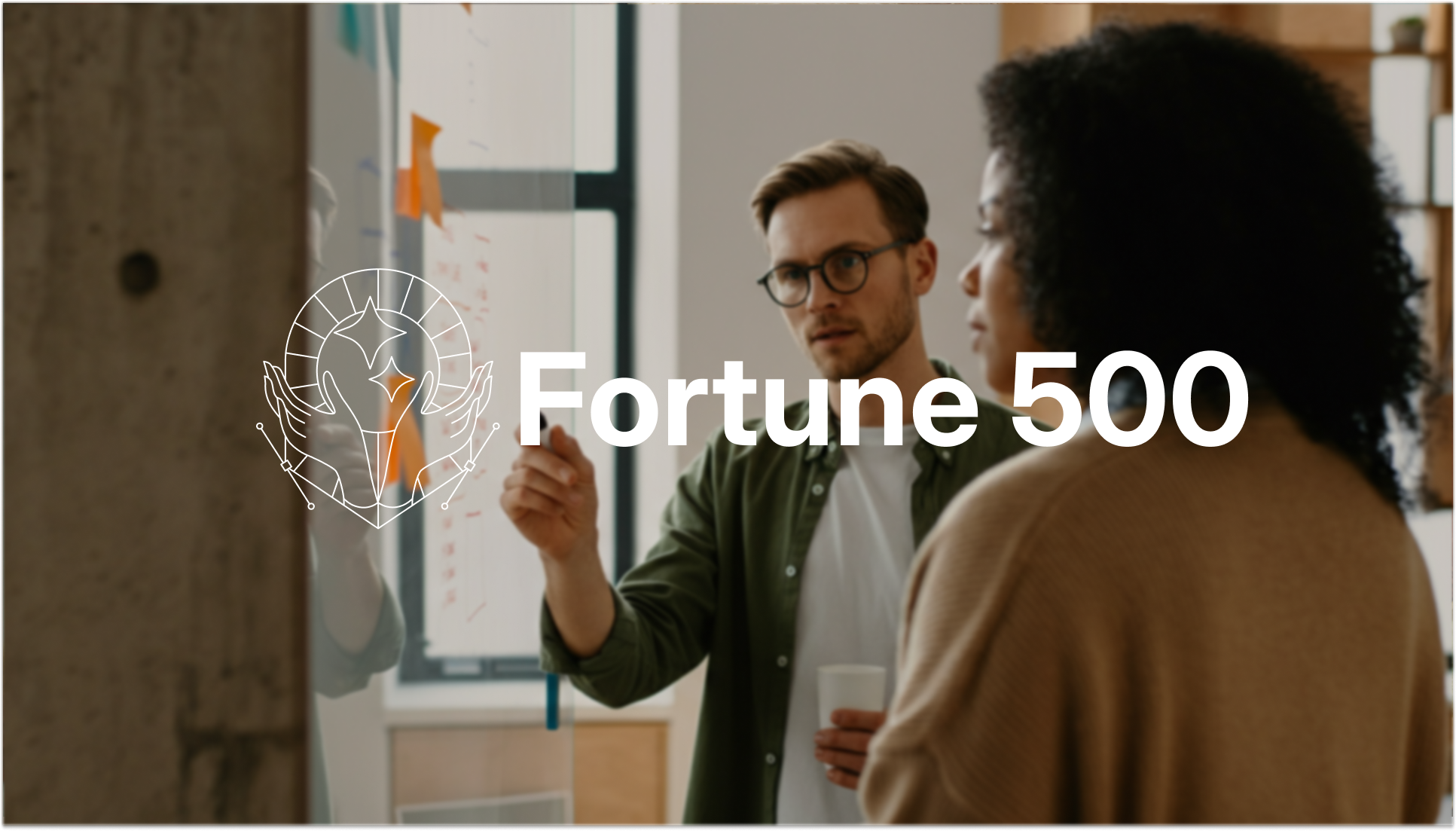
How a UGC-Style Video Ad Earned Nearly 1,200 Leads in One Month
4,600+ clicks, 590,000+ impressions and nearly 1,200 leads in just one month—all from a 45-second UGC-style ad we shot on an iPhone.
Yup, you read that right.
This playbook will cover exactly how we did it—from concept to publishing—and how you can, too. Because sharing is caring, we want you to have the same success.
Keeping Our Ads Fresh and Our Audiences Engaged
After seeing a 217% increase in lead acquisition and cutting our cost-per-lead by 45% month over month with our initial tests of UGC-style ads, featuring our very own Supersiders as the talent, it was clear we were onto something.
But even the best ads get old—prompting our team to regroup each month to brainstorm the next wave of ideas. This time, our assignment was to develop a video ad, using the same UGC-esque genre, promoting our popular guide on the dysfunctions between marketing and advertising teams.
The ad would then be versioned for:
- Instagram Stories
- Instagram Feeds
How We DIY'd Our UGC-Style Video Ads
Even though we took a simplistic approach, there's still a lot of work behind the scenes to bring a UGC video ad campaign to life.
1. Concept development
Taking inspiration from examples within our Design Dysfunctions Guide, we identified a pain point felt by our target audience and flipped it on its head.
Creatives aren’t new to receiving incomplete project briefs with unrealistic deadlines from marketing—but what about when those briefs are perfect? And there's ample time to really be strategic with the creative output?
This would be our unique and comedic way of framing a problem—an alternate reality of sorts.
2. Pre-production
Writing the script, we open with the line, “Good morning, design team!” to let our audience know immediately that this ad is for them. From here, our goal is to get to the joke as fast as possible to avoid being tuned out.
And on social, we know it's like racing the weaning attention span clock.
This is where the storyboard comes in—planning every scene and every reaction to deliver a comedic punch alongside the script.
Once the punchline is delivered, we pivot from entertaining to adding value, communicating the takeaways of our dysfunctions guide before signing off with a call to action.
Apart from the storyboard and script, pre-production included planning who'd be on camera, where we'd shoot, and ensuring we had everything we needed for filming day. Which, luckily for us, wasn't a whole lot. UGC-style content should look and feel very natural, not overly polished.
3. Filming
Our ad was shot in a regular boardroom at a typical coworking space using a regular iPhone.
We didn’t use any fancy lights or special apps. There was no hair and makeup or professional actors. Tyler is actually in marketing. Josh and I are actually on the creative team. We’re everyday people just like our audience.
👉This is why nearly 80% of consumers say UGC content impacts their buying decisions. Audiences will always identify more with fellow buyers than with a faceless corporation.
👉UGC works because it lets your customers see themselves in your marketing—washing away the corporate polish and revealing a more authentic, human-centered side of your brand.
When your ads run on Instagram, TikTok and other social channels, you need to consider what audiences are looking for—not in the ads, but in the platform content itself.
👉People aren’t looking for Oscar-worthy performances. They want to see people having fun. They want to be entertained (or distracted) and that’s what our "actors" deliver.
4. Post-production
Once the ad is filmed, we upload the footage first to Descript to leverage its captioning tools. This step is critical to engage the 69% of people who watch videos with the volume turned off.
For those who do watch with the sound on, they’ll see that music is carefully selected to play into the theme of our ad. For the widest selection of stock music, we use Artlist.
Our team of motion graphics experts carries the ad to the finish line, taking the Descript export into Premiere Pro for color correction, audio editing, and of course, the closing animation.
Lastly, once the ad was approved by our team, it was cropped for 9x16 and 1x1 aspect ratios for optimal viewing across different channels.
5. Distribution and Measurement
We uploaded the ads to each channel, reviewing the results every 7 to 14 days to determine performance based on impressions, cost-per-action (CPA), click-through rate (CTR) and cost-per-click (CPC).
"Good Morning, Design Team! Hope I'm Not Intruding..."
Going back to our ad, it’s not finding someone who’s locked in a cubicle for eight hours a day.
It’s finding someone working from the comfort of their own home. They’ve got Spotify playing. They pick up their phone, scroll through Instagram—and between the puppy pics and the memes—they find our ad and it fits right in.
The widespread adoption of remote work coupled with the always-connected nature of social media has changed the B2B audience.
Today’s ads aren’t just competing with other brands, they’re competing with Netflix, video games, social media and everything else the digital world has to offer.
Sharing a valuable product or service isn't enough, you need to present it in an attention-getting way that properly tees up your pitch.
Additional Inspiration
Here are a few of the resources mentioned in this playbook:
- 🎬 My interview with Vimeo's VP of Marketing, Melissa Matlins, where she shares her thoughts on human-centric marketing.
- 📖 An overview of how our first rounds of UGC-style ads smashed our CPL goals.
- 🤔 Insights on rethinking your approach to UGC
- 📚The Design Dysfunctions Guide—Check it out and this link is completely ungated.
- ❌ Not your typical guide to video marketing, here's one you'll actually use. (Also ungated.)








